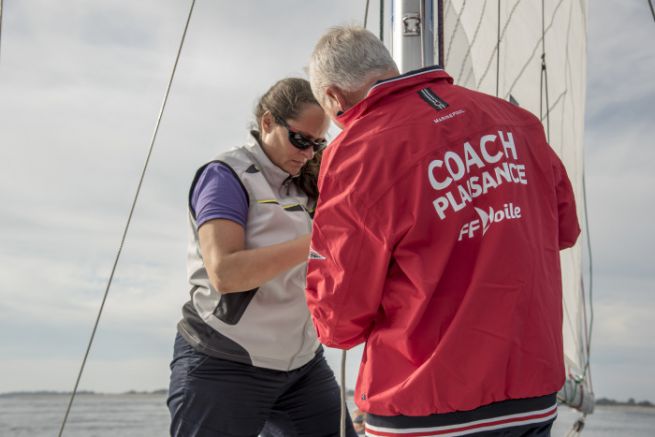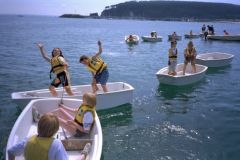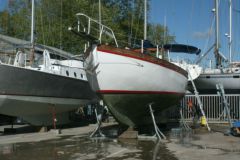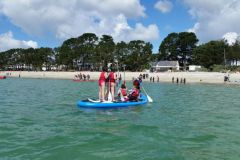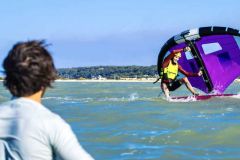A prospective study to imagine the yachting of tomorrow
The Finistère 360 agency, heiress of Nautisme in Finistère, and now in charge of the departmental yachting sector, launched in 2018 a prospective reflection on future developments in the sector. After collecting information on the current state of the market, the members of the agency imagined, with the company WeaveAir, a specialist in prospective design, different scenarios for yachting in 2035. These hypotheses were submitted to Finisterian boating professionals during workshops. The first results were presented on 26 November 2019.
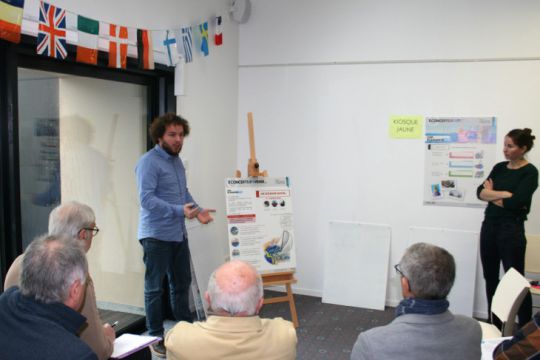
Need for the evolution of water sports
The analysis of statistics related to the practice of yachting will force the sector to reinvent itself. Nevertheless, Finistère 360 experts see positive points. "The drop in sales and the non-renewal of customers are not a sign of a lack of interest in pleasure boating," they say. However, according to them, it is necessary to find a way to "make it a leisure activity like any other" by removing obstacles and fears. The loss in the yachtsman's journey, between the 50% of French people who would like to sail and less than 5% who practice regularly, must be reduced. By 2035, 85 to 90% of current boaters will have stopped sailing, so Finistère 360 has set this limit to consider a new type of boating.
3 Boating Concepts
During the various workshops, a series of scenarios, ranging from technological to post-apocalyptic, linked to a very high water level, were studied. The synthesis carried out by Finistère 360 brings out 3 main concepts, linked to 3 clienteles.
- An ocean of knowledge, relies on current boaters and the necessary transmission of navigational knowledge, particularly through sponsorship.
- A la carte pleasure for occasional sailors. This is done through subscription platforms offering a variety of activities, from paddle to hydrofoil catamaran, but also outside the nautical world.
- The Third Port is aimed at current "non-customers", those people who walk around the port without being involved. It passes through places of work or exhibition, ephemeral or permanent. It addresses the problem of unused land linked to activities such as fishing, which could be the driving force behind the coastal transition, explains the organisers.
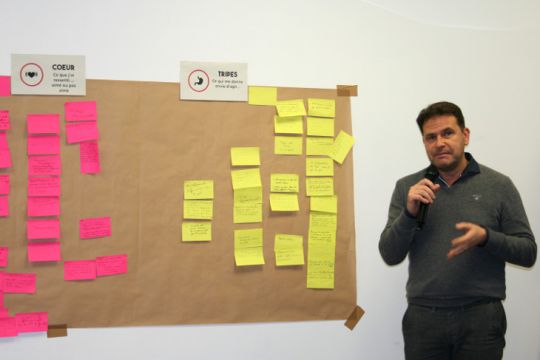
Michaël Quernez, President of Finistère 360
A human pleasure with technology as a support
The relatively close horizon of 2035 did not give rise to a revolutionary trend, insisting, as do the many recent studies on the transition from ownership to use. Nevertheless, it is worth noting the importance given to the human link in relation to technologies. While the digital platform is presented as a booking and networking tool, it is less so as a means of learning and practice. The human relationship is privileged. "One of the challenges is to connect people with a community with a sometimes closed reputation," said one speaker. In addition to holidaymakers, pleasure boating is also structuring for the inhabitants and is all the more important for the territory. "We often talk about foreign customers and yet our first customers are the Bretons," recalled Michael Quernez, President of Finistère 360 as a conclusion.

